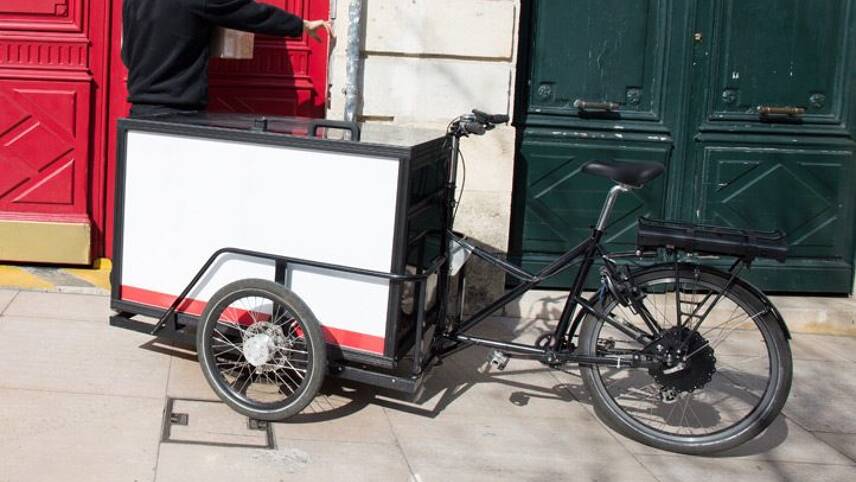Register for free and continue reading
Join our growing army of changemakers and get unlimited access to our premium content

Businesses ranging from the Greater London Authority to local SMEs are turning to cargo bikes
Backed by Transport for London (TfL), the Bikes for Business scheme is aiming to get 60 businesses in the London Bridge area to use cargo bikes, assisting with the Mayor of London’s vision to deliver zero-emission zones across the capital from 2025 and hit a target to reduce the number of vans and lorries in central London by 10% by 2026.
Replacing 15% of delivery vans with cargo bikes in London would remove 28,750 van journeys from the streets. It is estimated that the cost to the London economy of congestion is more than £130m – of which 52% comes from freight vehicles. TfL estimates that the region could save £10m annually as a result of a wider rollout.
TfL’s director of transport strategy Lilli Matson said: “We’re working closely with businesses and business groups such as Team London Bridge to encourage people to think about cleaner, safer and more efficient ways of moving goods.
“Cargo bikes have real potential to help clean up London’s toxic air and it’s fantastic to see Team London Bridge’s bold ambitions for cycle freight ahead of the launch of our Ultra Low Emission Zone later this month. We’re investing in schemes such as this right across London as work towards the Mayor’s ambitious targets for reducing the numbers of vans and lorries entering central London by ten per cent over the next six years.”
Bike benefits
TfL claims that the adoption of cargo bikes for delivery purposes could bring a range of benefits. By reducing long-term exposure to harmful emissions, the bikes could help save up to 450 lives each year – due to the thousands of premature deaths that are linked to air pollution.
Businesses ranging from the Greater London Authority to local SMEs are turning to cargo bikes, which will be exempt from new ULEZ charges after 8 April.
ULEZ will operate 24 hours a day, every day of the year including weekends and public holidays covering the same area as the Congestion Charging Zone. Ikea and Sainsbury’s are notable businesses that have turned to bike deliveries and TfL is calling on companies to offer zero-emission deliveries as part of a check-out option for online shopping.
Team London Bridge’s chief executive Nadia Broccardo said: “As the Business Improvement District for London Bridge, Team London Bridge is committed to getting business to switch to cargo bikes.
“The introduction of ULEZ on 8 April and our Bikes for Business subsidy is a real opportunity to rethink how best to move freight over short distances in the capital. From groceries to medical supplies, cargo bikes can help businesses cut costs and journey times, as well as pollution that is blighting life in London.”
In related news, the City of London Corporation looks set to become the first UK authority to run a fully electric fleet of Refuse Collection Vehicles (RCVs), after announcing a new services partnership with waste firm Veolia.
As part of the contract, 74 solar auto-compacting BigBelly bins will also be installed, which send notifications to collection crews when they are full, allowing more waste to be collected.
Last year, Veolia retrofitted some of its RCVs with batteries and electric motors, converting them from diesel to electric power. The RCVs will initially be charged with grid electricity, but the company will then begin using energy generated from non-recyclable household waste – a move claimed to be first of its kind in the waste management sector. Services across London using the electric versions begin on Saturday (6 April).
Matt Mace


Please login or Register to leave a comment.